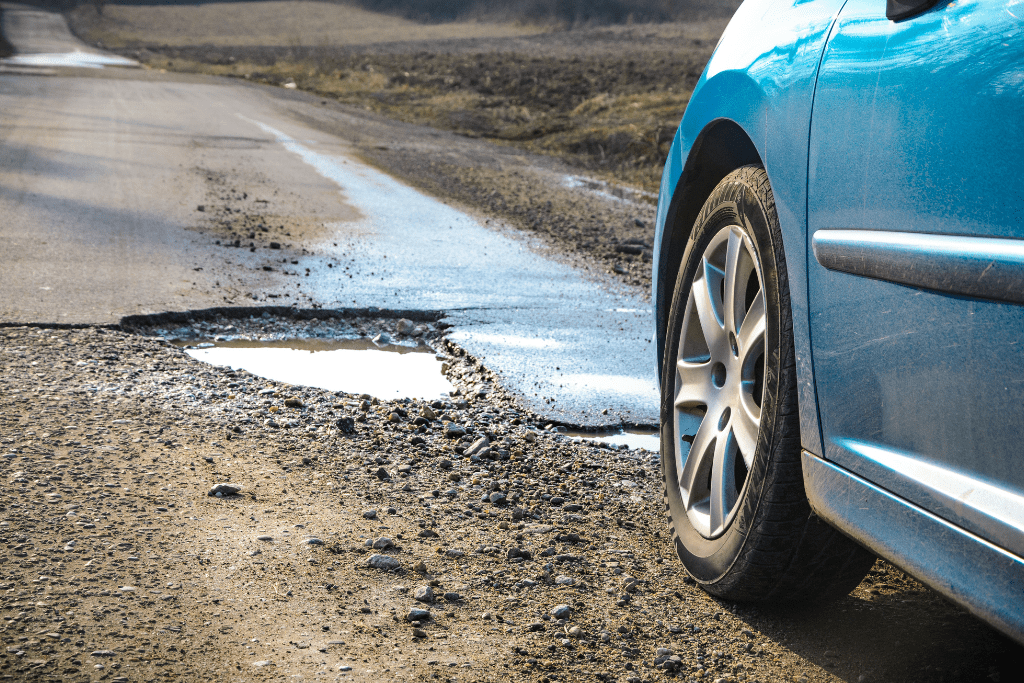You probably do it all the time – when you’re driving, trying to make sure you have enough petrol to get you to the next safe spot. You keep an eye on your fuel gauge to avoid issues before getting stranded on the road in the middle of nowhere. Well, I hate to break it to you…
Low fuel can cause damage to the fuel pump.
While fuel gauges have improved in cars made within the last ten years, they are not foolproof. In fact, you should never trust your fuel gauge completely, significantly when it dips toward empty. And suppose you’re playing that game of chicken with your fuel gauge and running on fumes. In that case, you’re putting unnecessary stress on your vehicle and risking a breakdown.
Why? Well, for one thing, it’s terrible for the health of your fuel pump. How does this work? Your fuel pump is located inside the tank and pumps petrol to your engine. Running low on petrol can cause damage to the fuel pump because it runs hotter due to a lack of cooling liquid surrounding its motor. Additionally, it’s more likely to overheat if you run low on petrol because less fluid is available to process through the system and cool down the mechanism. You can avoid serious (and expensive) problems by keeping an eagle eye on that fuel gauge!
Low fuel can put your engine under stress.
If you’re the type of person who has to test your limits and constantly push the boundaries, then you may have found yourself in this exact predicament. You run out of fuel and are forced to foot it across town. But say you don’t have time for that kind of exercise or you’re too far away from a petrol station. You leave just enough fuel in your tank to make it home—but as soon as you turn off the engine, you realize that was a terrible decision because now your car won’t start again.
Low fuel can put your engine under stress because if it gets too low in the tank, the fuel level can fall below the pump intake, causing it to run dry. Things go downhill, especially if your engine is equipped with an electric fuel pump mounted inside the petrol tank (instead of on top like older vehicles). When there isn’t enough petrol in the tank for cooling purposes and contact with specific vital components, such as pickups and floats, friction increases and could lead to overheating and damage. And even though there are typically screens over these parts to catch anything floating around in one’s petrol tank, they need liquid surrounding them, so they don’t get scorched from being too close to heat sources like exhaust systems or mufflers.
Low fuel levels can lead to a sediment buildup in your fuel tank, getting into your engine.
Think of the fuel in your tank as the water from a bathtub. The water is clean and good to use, but if you let it drain away and don’t refill it for long enough, all manner of gunk (lint, dirt, errant hairs) can build up along the sides and bottom. Eventually, the freshwater will become stirred up once you start using your bathtub again. And if that’s allowed to happen in your car’s tank? Well…it won’t be pretty.
Low fuel levels can lead to a sediment buildup in your fuel tank, and this sediment can get into your engine. This is terrible news because it can cause significant damage to the following parts:
- Fuel filter—This piece strains any impurities or sediment coming through the lines thanks to its built-in mesh screen. If too much junk flows through (as would happen with older fuel), it could become clogged enough that no more fuel can pass through.
- Fuel injectors inject pressurized gas into your vehicle’s engine to make combustion possible; they’re like mini fire hoses for engines! If these are jammed up with dirt and grime from old fuel, they won’t do their job correctly (or at all).
Low levels of fuel mean low air levels, which can increase condensation inside your tank. Condensation causes rust, which is bad for your tank, bad for your fuel lines and bad for your engine.
When you leave your petrol tank near empty, the low fuel level also means little room for air in the tank. This can increase condensation inside your tank. Condensation causes rust, which is bad for your tank, bad for your fuel lines and bad for your engine. But why?
Air in the tank helps keep fuel fresh, while water can cause premature corrosion to every part of the system. Water forms when excess moisture mixes with the hydrocarbons or sitting still in a partially full or empty tank for long periods. If you tend to drive around with less than a quarter tank of petrol regularly, this could mean that water droplets are forming and settling at the bottom of your tank. The next time you fill up, you bring those water droplets back into contact with the petrol, where they mix and then get pumped through your engine to do some damage. Rusty parts mean fewer parts: if the rust gets severe enough to cause pinhole leaks or serious blockages along any part of the fuel line between the pump and carburettor/injectors (or on other vehicles between the pump and engine), you’re going to have big problems.
If you run out, you have to pay more money to deliver just a little petrol. In contrast, if you filled up earlier, you’d only pay when you added more petrol than you already had.
When you run out of petrol, you have to pay the tow truck driver to bring you just enough fuel to get your car running again. That’s a lot more expensive than just filling up at a petrol station. Here are some tips on how to avoid running out of petrol:
- Put down your phone and keep track of your car’s fuel gauge; don’t be fooled into thinking that “I know my car” is as reliable a strategy as keeping an eye on the numbers.
- If you see that your fuel gauge is closing in on empty, weigh the cost of getting more petrol now versus waiting until it runs out—and if it runs out, consider the cost of calling a tow truck against refilling what’s already in there.
- Try not to get caught up in the rush hour traffic with anything less than half a tank left.
So the next time you’re thinking about playing I-Know-My-Car (the game in which you try to determine how much fuel your car has left by observing warning lights and gauge fluctuations, despite all scientific evidence to the contrary), think again. Save yourself the trouble and don’t go fishing for that petrol station only when you absolutely have to. The best thing you can do is start getting into keeping track of your car’s fuel consumption.
Read more: Improving your fuel consumption on your vehicle
Read more: Fuel System
Read more: Fuel Pump Replacement



